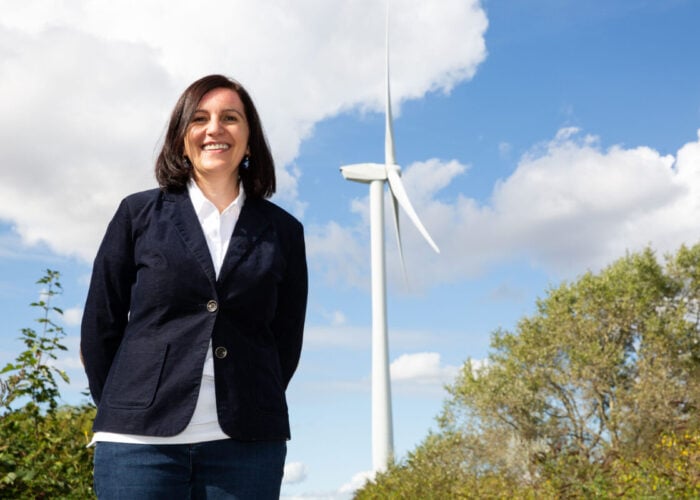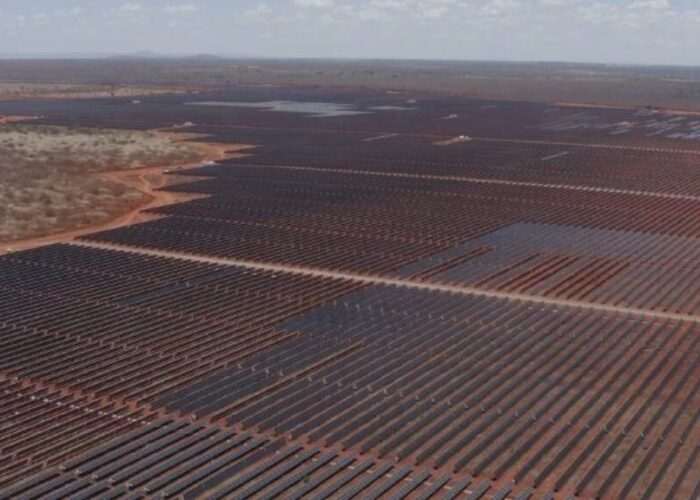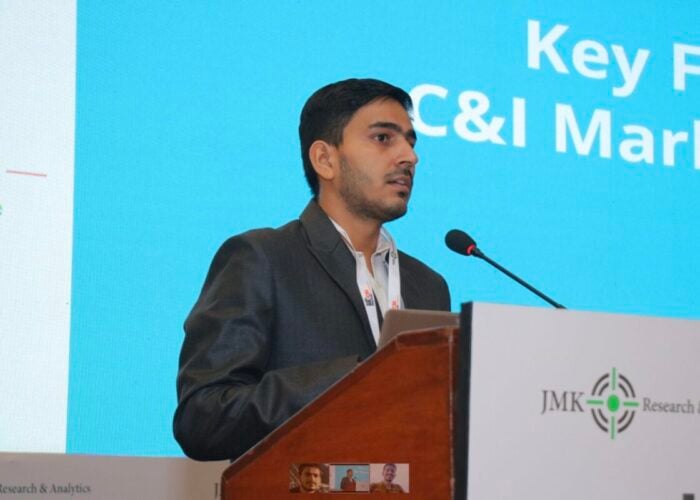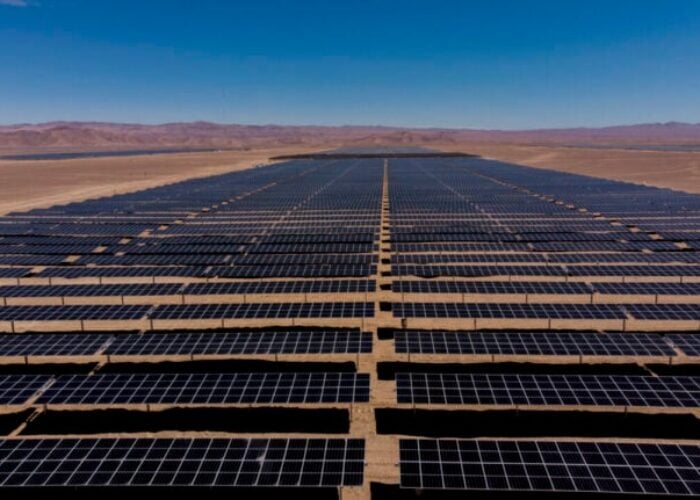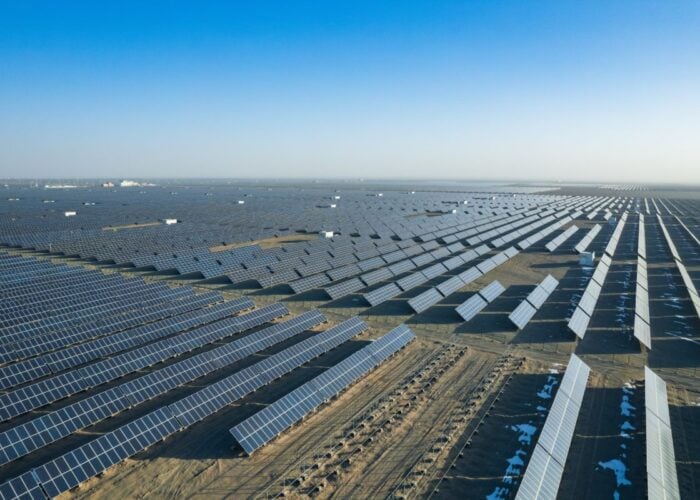
UPDATED: The last minute decision to drop Brazil’s only solar and wind auction for 2016 has been “received with perplexity” by the Brazilian PV sector, according to the head of the country’s solar association.
A statement from the Ministry of Mines and Energy (MME) said: “The reason for the cancellation is the reduction in energy load projections for the coming years.”
Unlock unlimited access for 12 whole months of distinctive global analysis
Photovoltaics International is now included.
- Regular insight and analysis of the industry’s biggest developments
- In-depth interviews with the industry’s leading figures
- Unlimited digital access to the PV Tech Power journal catalogue
- Unlimited digital access to the Photovoltaics International journal catalogue
- Access to more than 1,000 technical papers
- Discounts on Solar Media’s portfolio of events, in-person and virtual
MME’s new projections indicate a reduction of 3,480MW in the energy load previously foreseen for 2019, the same year that projects contracted in the cancelled auction would have been expected to start feeding energy to the grid. The decision of the Ministry was also approved by the National Energy Policy Council (CNPE).
Luiz Barroso, president of Brazil’s energy agency EPE, also told PV Tech: “The consumption growth in Brazil is heavily correlated with economic (GDP) growth. In the last few months the macroeconomic outlook for the next years has worsened quite a lot. GDP growth forecasts were unfortunately heavily reduced downwards in the last weeks. In order to be realistic, EPE has then adjusted its electricity consumption growth rates based on this new scenario and the oversupply in the system increased.”
However, Rodrigo Sauaia, chief executive and co-founder of the Brazil PV association Absolar, told PV Tech it is not yet known if the oversupply calculations included so-called ‘paper projects’, which are plants that have been won through auctions, but may not actually become operational.
Sauaia added: “As we don’t have that information, we don’t know how realistic the numbers are, and if in fact the oversupply is very significant or not that much.”
Furthermore, the MME is also in the process of re-evaluating the physical guarantees and actual generation capacity of Brazil’s hydroelectric power plants. It has also signalled that it expects to be able to eliminate projects from its planning figures that will not come online.
Long-term planning
On a separate note, Sauaia cited a lack of clarity over MME’s long-term solar ambitions. While there is an important volume of large-scale PV projects already contracted from auctions in 2014 and 2015 with delivery dates of 2017 and 2018, there is no clear volume contracted from 2019 onwards.
He added: “What we consider fundamental is that the MME clearly signals to the market, to the investors, to the manufacturers, what are the targets that the MME will use for each year so that we have predictability and a minimum ability to structure the developments and evolution of the local value chain.”
The new team at MME, headed by minister of mines and energy Fernando Coelho Filho, has yet to publish an updated long-term plan for the electricity matrix, so it is still hard to predict what capacity of renewables auctions if any to expect next year. Sauaia added that the political transition in the fallout since former presdient Dilma Rousseff was impeached, has been a problem.
Industry reaction
Sauaia said the auction cancellation will have caused a “sense of uncertainty” in the wind and solar sectors for both national and international companies and investors. The decision, to some extent, contradicts MME’s aims of attracting new investments and new companies to Brazil, and Sauaia described it as a “hard blow” to the industry – adding: “It frustrates the sector's expectations and represents a loss of credibility towards the announcements and the planning that the MME has been giving to the sector during 2016.”
However, Barroso said that even before the last-minute GDP growth revision, the outlook for the auction´s demand was already “very challenging” and EPE only expected a modest auction demand. More renewables capacity would make sense if there is demand for it, which may come if economic conditions improve or if previously awarded project contracts are cancelled.
He added: “It is a quite challenging outlook that may affect the perspectives for the procurement of new generation capacity in Brazil as a whole and that needs to be stated and faced in order to have transparency with the industry. Of course, solar is a key resource for Brazil to meet its goals of keeping its energy matrix low-carbon and it does make sense for the country considering the positive attributes with the existing power system.”
At the start of the year, the sector expected two auctions. However, solar was removed from the first and the MME “promised” that solar would be included in at least one other auction in 2016, according to Sauaia, but after several delays the second reserve auction has now been cancelled with less than one week to go before its 19 December due date.
Sauaia said the PV sector is doing its “fair share” in creating new jobs, inaugurating new factories and supporting the overall recovery of the Brazilian economy, which is the midst of a significant downturn, so the auction cancellation is a missed opportunity.
If the government had contracted between 1-1.5GW of solar, it could have attracted investment of BRL9 billion (US$2.7 billion) through the whole value chain, according to Absolar calculations.
Sauaia concluded: “For the government to be able to recover its credibility towards the sector and national and international investors there is hard work ahead.
“The MME has also announced a goal to have 23% of non-hydro renewables into our electricity grid by 2030. To reach that goal we need to move forward with solar – also wind and biomass – in Brazil, so this will be fundamental for us to be able to reach these goals.”
This article has been revised to include quotes from the Luiz Barroso of EPE.


